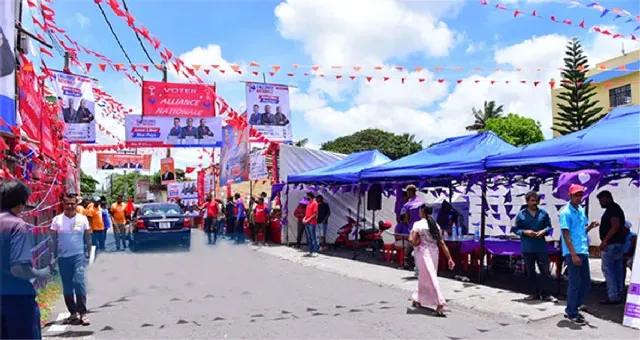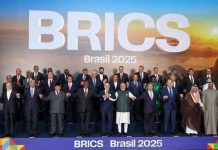
Africa-Press – Mauritius. Lex is invited to share his legal insight into various matters related to the holding of general or local municipal elections. Namely the unfettered powers granted to the PM under the Westminster system for fixing the date of general elections at the time of his chosing within the five-year mandate and whether this should be checked.
There are also questions regarding the ease with which municipal elections, last held in 2015 and postponed in 2020 due to the pandemic, can be further postponed under the guise of a pandemic or any unspecified public emergency.
* On 7 May 2021 Cabinet took the decision to introduce the Local Government (Amendment) Bill into the National Assembly with a view to extending “the life of 6 years of the entire Municipal City Council and Municipal Town Councils, or entire Village Councils, by not more than one year at a time, provided that the life of the Councils shall not be extended for more than 2 years”.
Would it be correct to conclude that the government would be bound, on the basis of that amendment, to hold the next municipal councils elections, last held in 2015, this year?
It would be possible to extend the life of a municipal council indefinitely under the Local Government Act. When the law was amended in June 2021, the object of the Local Government (Amendment) Bill read as follows:
‘The object of this Bill is to amend the Local Government Act so as to provide that, at any time, when – (a) a period of public emergency is in force in Mauritius; and (b) there is, or there is likely to be, an epidemic of a communicable disease in Mauritius and a quarantine period is in force in Mauritius, the President, acting in accordance with the advice of the Prime Minister, shall, by Proclamation, extend, during such periods, from time to time the life of 6 years of the entire Municipal City Council and Municipal Town Councils, or entire Village Councils, by not more than one year at a time, provided that the life of the Councils shall not be extended for more than 2 years.
’ It will be noticed that the justification for the extension of the life of municipal and village councils was a public emergency or an epidemic.
Even if there may not be an epidemic, the government might still fall back on public emergency situations to extend the life of these councils again. Any event can be invoked as a public emergency.
It may not be only social unrest or a political turmoil. It can be an emergency caused by an economic crisis or based on threats to national security.
* What if the government were to seek to circumvent that legal obligation with a view to extending further the life of the municipal councils? Can it possibly do that and, if so, is there any way this could be prevented?
Not really. The Local Government Act can be amended by a simple majority and does not require a weighted majority of three quarters or two thirds of the votes in parliament.
Those who want to challenge any further amendment may invoke the anti-democratic nature of any further amendment. However, this would be very difficult to establish.
* In South Africa efforts were under way to postpone local government elections, set for October 2021 as per the current constitutional requirement that such elections be held every five years, because of the Covid-19 pandemic.
But the application by the South African Electoral Commission for postponement was dismissed by the Constitutional Court, which ordered that the polls must go ahead.
What lessons should we draw from South Africa in that regard? We cannot know as nobody has to date challenged the extension of the life of the municipal councils.
In the end, to adopt the reasoning of the South Africa Constitutional Court, the question that must be asked is whether elections would be free and fair if they were held when due.
If the answer is yes, then that is the end of the matter. If the answer is no, then the question is whether the elections should have taken place take place despite the Covid-19 risk,
* Even if one of the defining characteristics of a democracy is that it holds regular, periodic elections – a requirement enshrined into Article 21(3) of the Universal Declaration of Human Rights (UN General Assembly 1948) -, between February 21 and August 18, 2020, elections in at least 70 countries and territories across the globe had been postponed.
Yet during the same time period, plans for national or subnational elections in at least 54 countries continued (International IDEA 2020a). Would you say therefore that once an election has been scheduled, it should take place come what may?
That should be the rule. Elections can only be postponed in exceptional circumstances. Only extreme situations can give rise to exceptional circumstances.
Now that restrictions have been lifted and the wearing of masks is not compulsory what would prevent the government from holding the local elections? The fear of a massive defeat looming ahead? There is no other justification.
For More News And Analysis About Mauritius Follow Africa-Press






